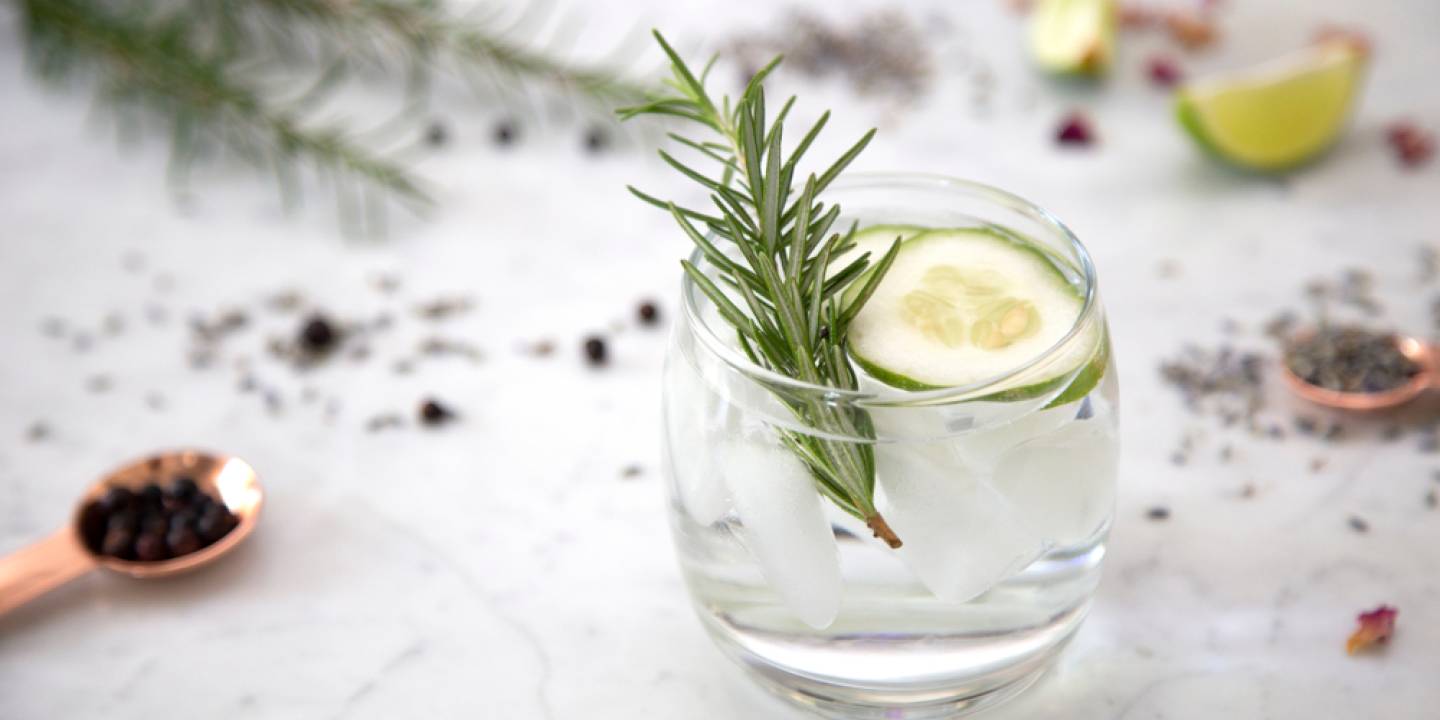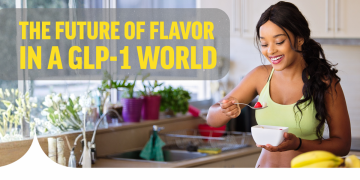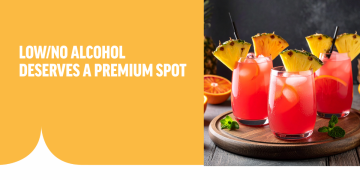It’s no secret that botanicals are on the rise. For a while now, gin producers have been toying with botanical flavours to boost interest in their ever-popular drink, and supermarket shelves have been stocked to the brim with caffeine-free tea alternatives that contain botanical extracts. However, it’s the growth in consumer demand for health and wellbeing products that has really seen botanicals boom, across a wide range of drink categories. And it’s only getting stronger with Covid-19 now dominating the agenda.
Almost 1 in 4 UK young people between 18-24 years old are now choosing to be teetotal. As a result, these younger consumers are seeking a premium soft drink alternative to the traditional carbonated soft drink. Where elderflower tonic has become a popular go-to flavour for Europe’s gin-drinker, so too this English botanic has become a popular non-alcoholic beverage for the young consumer. With this in mind, we are expecting elderflower and other botanical flavours to emerge more and more in hard seltzer form among new product development ranges.
Millennials are being progressively recognised for a more open-minded and trusting approach to new flavours and natural remedies than their predecessors. Couple this with Covid-19, and society’s already growing interest in healthy living, and we find a botanicals “perfect storm”. Gaining increasing traction among hard seltzer producers, botanicals will continue to develop as a flavour category for consumers looking not only for alcoholic alternatives but also low-sugar and low-calorie options, that are equally rejuvenating and full of flavour.
You see, more than ever before, consumers are pouring over labels, seeking wellness-related products that not only quench thirst but also proactively improve wellbeing. Real, natural, organic, and low or no sugar are all buzzwords for these consumers. The appeal of botanicals is that they tap directly into these current trends. According to Global Data’s 2019 Q4 consumer survey, a majority of global consumers (68%) think that botanical/plant extracts have a positive impact on their health. While research from Mintel has found that RTD consumers lean towards products that feature antioxidants (47%), promote brain health (40%), are anti-inflammatory (35%) or include probiotics (30%).
Against this backdrop, savvy brands will recognise that functionality, holistic wellness and plant-based extracts are all characteristics that can help their product gain popularity among consumers; whether that’s through drinks with natural ingredients, or meals with superfood elements. By incorporating botanicals into beverages, manufacturers are able to provide clean label formulation opportunities and a chance to tap into some of the current global trends. Even alcoholic beverages can benefit from the associated ‘health halo’ effect by calling out botanical ingredients.
Intensified, in part, by the Covid-19 circumstances, the desire for mental health benefits from food and beverages have also contributed to the botanical boom. Mindfulness and stress-reduction are now major drivers for some consumers who are moving away from products that deliver short term wins, in favour of convenient products that impart long term benefits. Functional beverages that can improve mood, boost brain health, and offer relaxing properties are all set to gain traction, potentially superseding the short-lived energy-boosting drinks that have previously been popular. And botanicals can play a useful part in that positioning, thanks to their health and wellness attributes.
While lavender has long been recognised for its relaxing properties, turmeric is becoming increasingly appreciated outside of its usual culinary flavouring because of its beneficial cognitive, anti-inflammatory and antioxidant properties. These are both examples of adaptogens and we are seeing them more and more in formulations. Adaptogens are substances considered to increase the body’s ability to resist the damaging effects of stress and promote or restore normal physiological function (Mirriam‐Webster). Other examples include the likes of guarana, ginseng, liquorice, maca and rhodiola rosea.
Rosie Travers, Herbs, Spices and Florals, and Health and Wellness Category Manager for Treatt, concludes:
“Botanicals not only answer the consumer demand for ingredients that carry health and wellbeing elements but also bring a number of advantages for beverage developers. Their diverse flavour profiles mean that botanicals can add spicy, herbal, or floral notes to a beverage, without relying on sugar for a taste sensation. Certain botanicals even carry natural caffeination properties and many have vibrant colours. In addition, botanicals can offer clean label formulation and the potential for a compelling marketing and provenance story.
“At Treatt, we keep abreast of the consumer trends in flavour so that we can give our clients the competitive edge and ultimately meet the consumers’ needs. We see that the health-conscious consumer is increasingly driving the agenda within the food and beverage sector and that they are looking for ever more unusual and exotic flavour pairings. So, while the most popular botanical ingredients to date have included cinnamon, lemongrass, hibiscus, ginger, and mint, we’re expecting florals to lead the pack going forward. This is because they pair easily with other flavours and can offer an appealing visual element too.”
If you’re interested in finding out more about the botanical boom, or Treatt’s natural extracts solutions in general, then please visit: www.treatt.com or email enquiries@treatt.com.
Reference: https://www.independent.co.uk/life-style/food-and-drink/alcohol-teetotal-young-adults-drinking-beer-siba-a9393361.html



